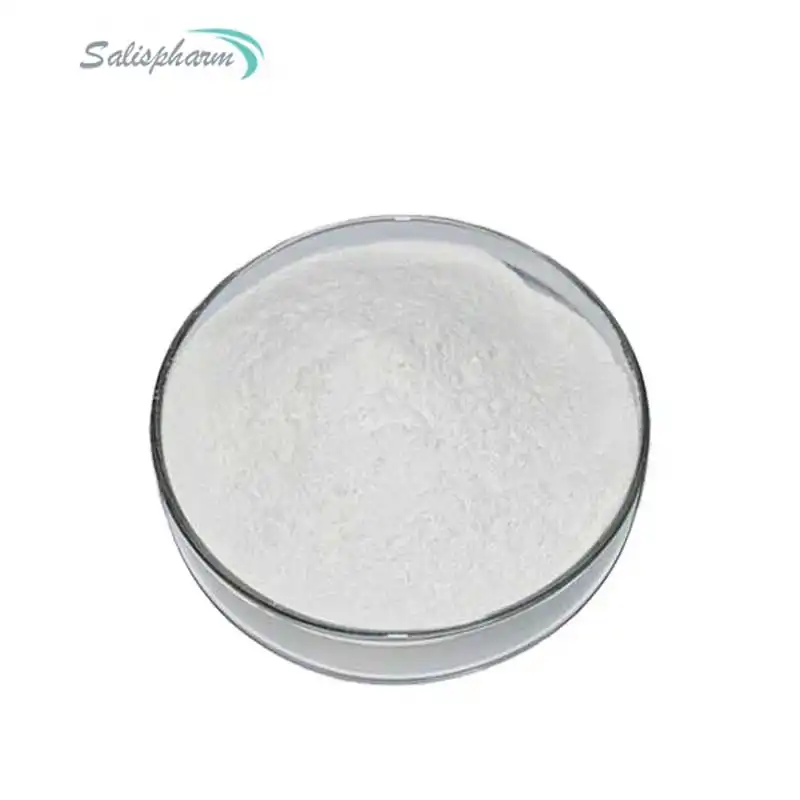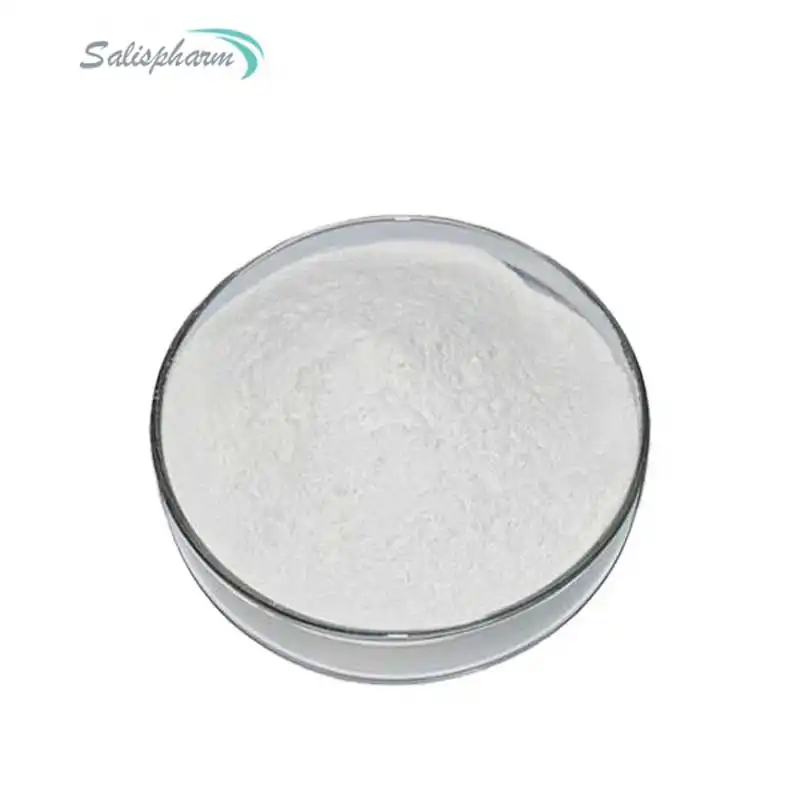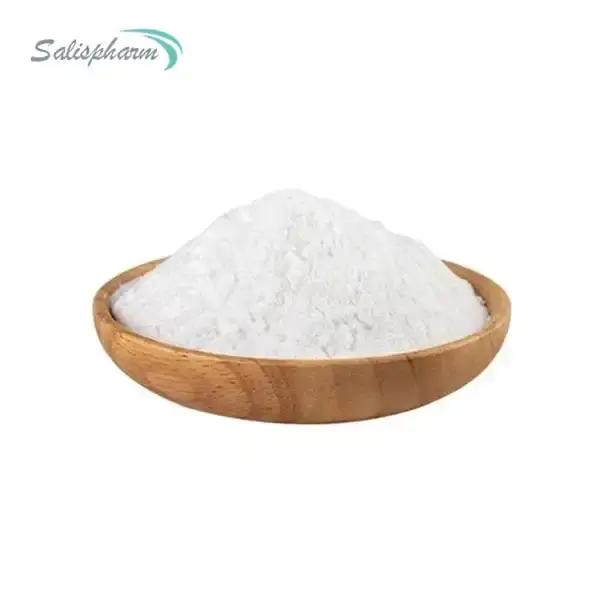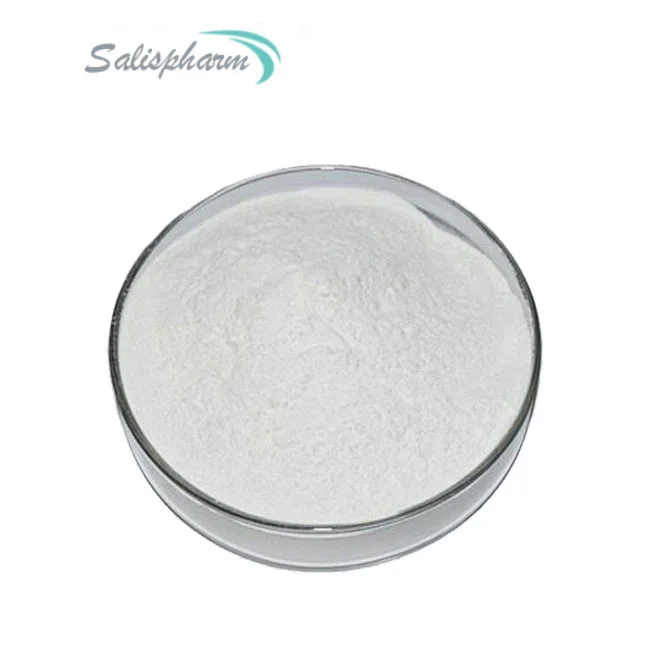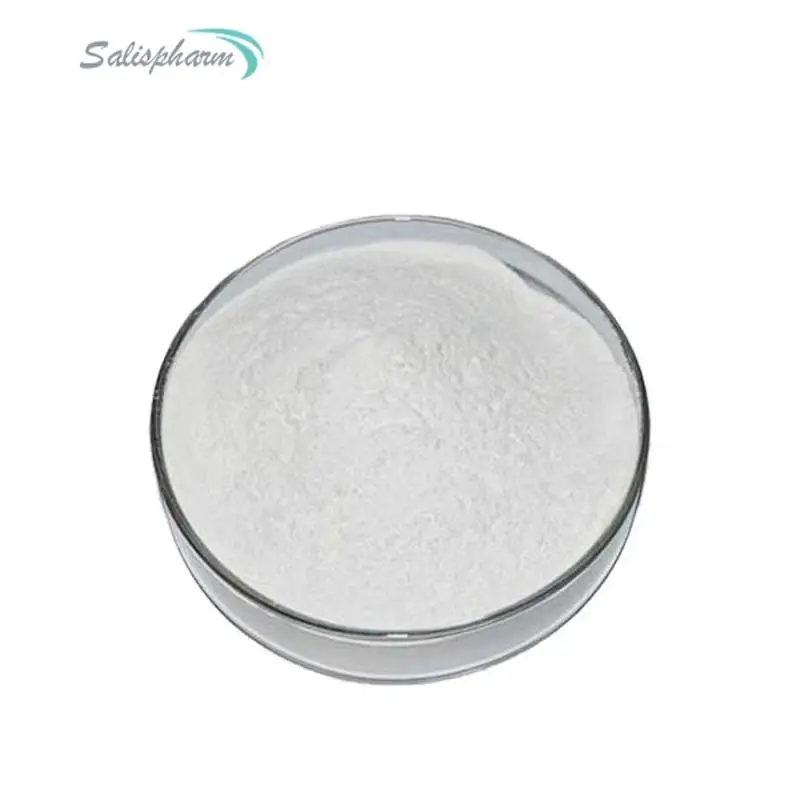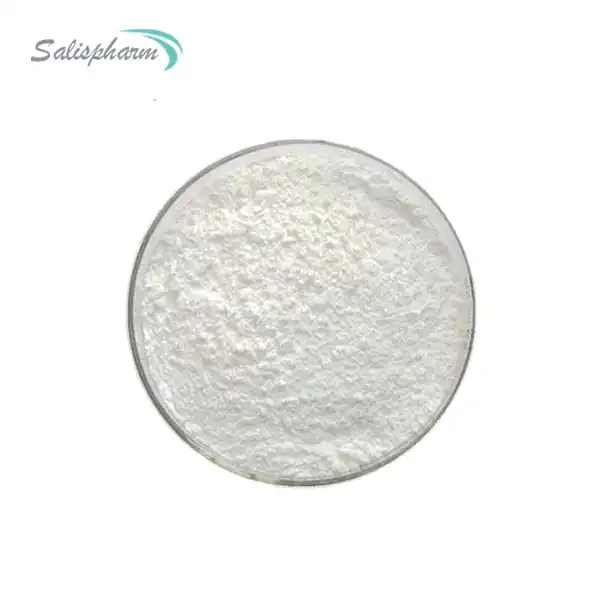Vinpocetine powder is a synthetic derivative of the vinca alkaloid vincamine, which is derived from the lesser periwinkle plant (Vinca minor). It is a popular dietary supplement that has gained attention for its potential cognitive-enhancing and neuroprotective properties. However, there has been some debate surrounding whether vinpocetine powder acts as a blood thinner, which is an important consideration for individuals taking anticoagulant medications or those with certain health conditions. In this blog post, we will explore the nature of vinpocetine powder, its potential interactions with blood thinners, and any potential side effects associated with its use.
What is Vinpocetine Powder and How Does it Work?
Vinpocetine powder is a synthetic compound that has been studied for its ability to enhance cerebral blood flow and improve cognitive function. It is believed to work by several mechanisms, including:
1. Increasing blood flow to the brain: Vinpocetine is thought to dilate blood vessels in the brain, improving blood flow and oxygen delivery to brain cells. This increased blood flow may enhance cognitive function and protect against age-related cognitive decline.
2. Reducing oxidative stress: Vinpocetine has been shown to possess antioxidant properties, which may help protect brain cells from damage caused by free radicals and oxidative stress.
3. Modulating neurotransmitter levels: Some research suggests that vinpocetine may influence the levels of certain neurotransmitters, such as dopamine and norepinephrine, which are involved in cognitive processes like attention, memory, and motivation.
4. Enhancing neuroplasticity: Vinpocetine may promote neuroplasticity, which is the brain's ability to reorganize and form new neural connections. This could potentially improve cognitive function and aid in recovery after brain injuries or neurodegenerative diseases.
While the exact mechanisms are not fully understood, vinpocetine powder has been studied for its potential benefits in improving cognitive function, memory, and overall brain health. However, it is important to note that more research is needed to fully understand its effects and safety profile.
Can Vinpocetine Powder Interact with Blood Thinners?
One of the concerns regarding vinpocetine powder is its potential to interact with blood thinners, also known as anticoagulants or antiplatelets. These medications are commonly prescribed to individuals with certain medical conditions, such as atrial fibrillation, deep vein thrombosis, or those at risk of stroke or heart attacks.
While there is limited research on the direct interaction between vinpocetine powder and blood thinners, some studies have suggested that vinpocetine may have mild anticoagulant or antiplatelet effects. This means that it could potentially enhance the effects of blood thinners, increasing the risk of bleeding or other complications.
However, it is important to note that the evidence is not conclusive, and the risk of interaction may depend on various factors, such as the specific blood thinner being taken, the dosage of vinpocetine, and an individual's overall health status.
If you are currently taking blood thinners or have a condition that requires anticoagulant therapy, it is crucial to consult with your healthcare provider before taking vinpocetine powder or any other dietary supplement. They can evaluate your specific situation and provide guidance on whether it is safe for you to use vinpocetine or if any precautions need to be taken.
Are There Any Side Effects of Taking Vinpocetine Powder?
While vinpocetine powder is generally considered safe when taken at recommended doses, some individuals may experience side effects. The most commonly reported side effects of vinpocetine include:
1. Gastrointestinal issues: Some people may experience stomach discomfort, nausea, diarrhea, or constipation when taking vinpocetine powder.
2. Headache: Headaches have been reported as a potential side effect, particularly at higher doses or when vinpocetine is taken on an empty stomach.
3. Dizziness or vertigo: Some users have reported feeling dizzy or experiencing vertigo (a spinning sensation) after taking vinpocetine.
4. Insomnia or sleep disturbances: Vinpocetine may interfere with sleep patterns or cause insomnia in some individuals, especially if taken close to bedtime.
5. Skin irritation: In rare cases, vinpocetine powder may cause skin rashes, itching, or other forms of skin irritation.
It is important to note that the risk of side effects may increase with higher doses or prolonged use of vinpocetine powder. Additionally, individuals with certain medical conditions, such as liver or kidney disease, may be more susceptible to adverse effects.
If you experience any concerning side effects while taking vinpocetine powder, it is recommended to discontinue use and consult with a healthcare professional. It is also advisable to start with a low dose and gradually increase it under the guidance of a qualified healthcare provider to minimize the risk of side effects.
Conclusion
In summary, while vinpocetine powder is not typically classified as a blood thinner, there is some evidence suggesting that it may have mild anticoagulant or antiplatelet effects. For individuals taking blood thinners or with conditions that require anticoagulant therapy, it is crucial to consult with a healthcare provider before taking vinpocetine powder to evaluate potential risks and interactions.
Additionally, vinpocetine powder may cause side effects in some individuals, including gastrointestinal issues, headaches, dizziness, insomnia, and skin irritation. It is important to be aware of these potential side effects and to start with a low dose under the guidance of a healthcare professional.
Overall, vinpocetine powder is a dietary supplement that has been studied for its potential cognitive-enhancing and neuroprotective properties. However, as with any supplement, it is essential to exercise caution, consult with healthcare professionals, and follow recommended dosages to ensure safe and effective use.
If you are also interested in this product and want to know more product details, or want to know about other related products, please feel free to contact iceyqiang@gmail.com.
References:
1. Szalai, G., Krishnamurthy, R., & Hajós, G. (2015). Vinpocetine and its role in cerebrovascular diseases. Neuropsychopharmacologia Hungarica, 17(3), 125-132.
2. Santos, M. S., Duarte, A. I., Moreira, P. I., & Oliveira, C. R. (2000). Synaptosomal response to oxidative stress: effect of vinpocetine. Free Radical Research, 32(1), 57-66.
3. Bhatti, J., Vijayvergiya, R., & Singh, S. (2009). Vinpocetine and its use in Alzheimer's disease. Applied Clinical Pharmacology and Toxicology, 7(1), 22-28.
4. Patyar, S., Prakash, A., Modi, M., & Medhi, B. (2011). Critical analysis of pharmacokinetic and behavioral effects of vinpocetine, a potent brain vasodilator, in the therapy of cognitive impairment. European Journal of Pharmacology, 670(1), 1-8.
5. Pereira, C., Reis, C. P., Nunes, F., & Ribeiro, C. F. (2020). Vinpocetine, a potential therapeutic agent for cerebral ischemic diseases: A review. Biomedicine & Pharmacotherapy, 129, 110449.
6. Ribeiro, C. A., Grando, V., Dutra, R. C., Pasquali, M. A., & Durgante, P. C. (2011). Vinpocetine: An open case study in drug metabolism involving chemical study, in silico prediction, and inhibition assays. Current Drug Metabolism, 12(6), 532-545.
7. Koeberle, A., Northoff, H., & Werz, O. (2009). Identification of 5-lipoxygenase and cyclooxygenase inhibitors in Vinca minor. Phytomedicine, 16(10), 961-967.
8. Muir, K. W., Lees, K. R., Ford, I., & Davis, S. (2004). Magnesium for acute stroke (Intravenous Magnesium Efficacy in Stroke trial): randomised controlled trial.

